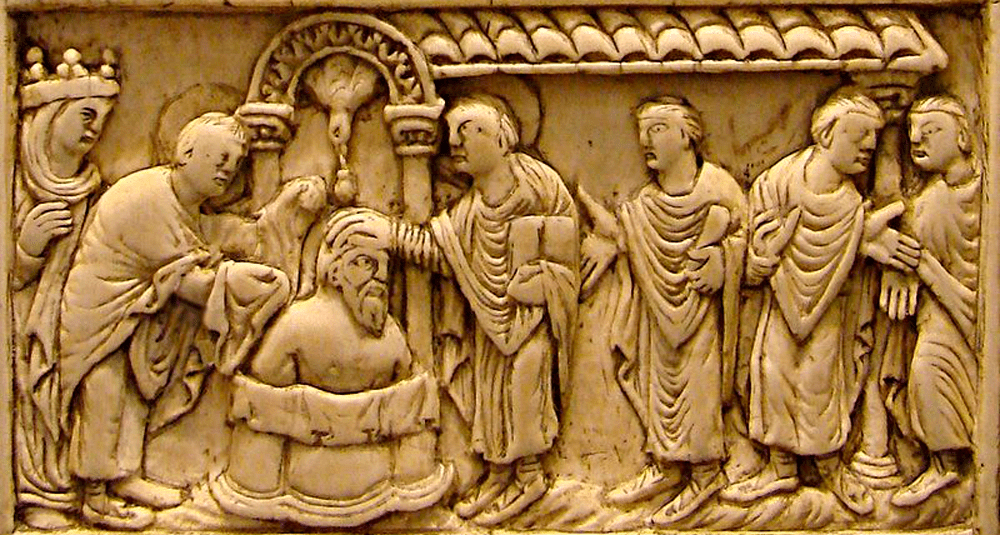As a result of what battle did Clovis I convert to Christianity?
Last Updated:
The Battle of Tolbiac, which took place around 496, is one of the most famous events in Frankish history. It is directly linked to the conversion to Christianity of Clovis I, king of the Salian Franks, a decisive turning point in the religious and political history of Gaul. The battle marked the beginning of a lasting alliance between the Frankish monarchy and the Roman Catholic Church, the foundation of the future Christian France.
Clovis I, successor to Childeric I, had reigned over the Salian Franks since 481. At the time, Gaul was divided between several barbarian peoples: the Visigoths to the south, the Burgundians to the east, the Alamanni to the northeast, and the territories still under Gallo-Roman control.
The Alamanni, a pagan Germanic people, represented a major threat to the Franks. A series of conflicts broke out between them in the 490s. The Battle of Tolbiac (probably near present-day Zülpich, Germany) was one of the most important of this period.
According to Gregory of Tours’ account in his History of the Franks, Clovis found himself in great difficulty during the battle. His troops were weakening against the Alamanni. It was then that he turned to the Christian God of his wife, Queen Clotilde, a fervent Catholic.
In a fit of despair, Clovis prayed:
O Jesus Christ, whom Clotilde proclaims Son of the living God, if you give me victory over these enemies, I will believe in you and be baptized in your name.
Shortly afterwards, the course of the battle changed. King Alaman is killed, his men flee and Clovis wins. This event is interpreted as a divine sign, prompting the Frankish king to honor his promise.
After the battle of Tolbiac, Clovis decided to convert to Catholic Christianity (rather than Arianism, the dominant doctrine among other Germanic peoples at the time). He was baptized in Reims, probably in 496 or 498, by Bishop Rémi, in a solemn ceremony attended by several thousand of his warriors.
This conversion was not only a personal religious choice, it was also a major political act. By adopting the Catholic faith, Clovis won the support of the Gallo-Roman Christian elites and the Church, which saw in him a defender of the orthodox faith in the face of Arianized kingdoms.
The battle of Tolbiac and the conversion of Clovis are often considered the symbolic origins of Christian France. They mark the beginning of a unique model, a Catholic Frankish monarchy allied to the Roman Church. This model inspired the Merovingian and Carolingian dynasties, and served as the basis for the legitimization of royal power in France throughout the Middle Ages.
The event also took on a lasting symbolic dimension. It founded the legend of the Most Christian King and gave Reims a central role in the coronation of the kings of France. The link between political power and the Catholic religion is anchored in the collective memory thanks to this episode.
Clovis I converted to Christianity after his victory over the Alamanni at the battle of Tolbiac, around 496. This decisive moment, motivated by a prayer made in the midst of battle, marked the beginning of the alliance between the Frankish monarchy and the Catholic Church. Much more than a military confrontation, the battle of Tolbiac is one of the founding acts of Christian France.
history

As a result of what battle did Clovis I convert to Christianity?
Answer
Clovis I converted to Christianity following the battle of Tolbiac, won against the Alamanni around 496, after invoking Clotilde's God.